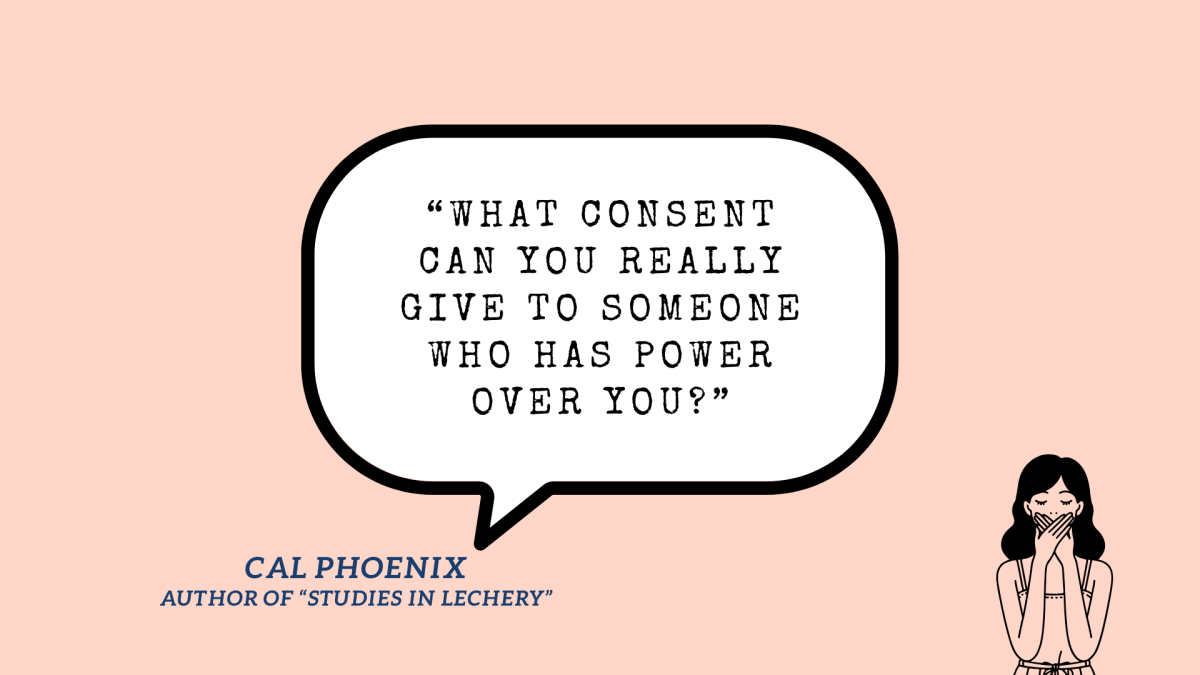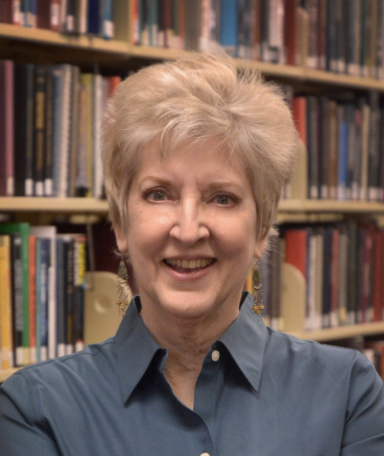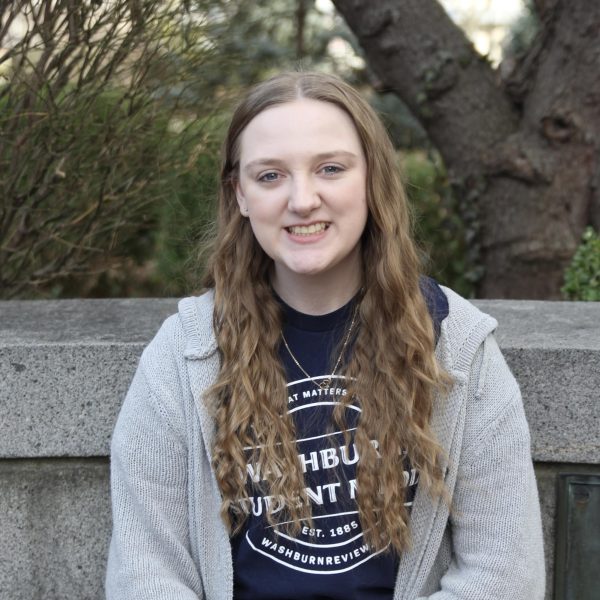Local author, Cal Phoenix, wrote a memoir titled “Studies in Lechery” about her experiences of sexual exploitation from a college professor while she was attending a university in Kansas.
“In retrospect, I can see that he had been grooming me for a long time to kind of get me into a position where I would be more vulnerable to his seduction,” Phoenix said. “That was the most abusive, traumatizing relationship I’ve ever been in in my life.”
At the start, Phoenix had consented to the relationship. However, she was not fully aware of who she was in a relationship with.
“I left the experience feeling that I had been raped,” Phoenix said. “Even though I consented to a relationship with him, I was unable to provide any informed consent. He really lied to me about the landscape of his personal life.”
Phoenix was not the only person this professor was in a relationship with.
“I learned that there were a lot more victims, and they weren’t just students,” Phoenix said. “I lost count after about 12, and that’s both students and faculty.”
The sexual exploitation had been reported by Phoenix after she had learned this was a pattern of the professor and other people had been victimized too. The professor had convinced her not to say anything previously by telling her lies like her degree or credits would be taken away if she came forward.
“For someone like myself who took academia really seriously, that was a really terrifying idea that all of these years of work could just fall out from under me,” Phoenix said.
She felt it necessary to speak up once she learned about her classmate’s experiences with this professor regardless of the repercussions she could face. Many lies were told to her about what would happen as a result of speaking up, and none of those were true.
“I was just like ‘I’m ready to just take whatever consequences,’ because I can’t knowingly walk through the rest of my life without saying something, knowing that he could be hurting another person,” Phoenix said.
She had reported the professor to multiple people at the college including the head of her academic department, HR, the sexual assault prevention coordinator, the Title IX coordinator and the dean. The professor ended up resigning, but no legal action was taken due to the Kansas statutes at the time.
“I feel that the college responded really well to me and my concern specifically. I felt heard and I felt believed,” Phoenix said. “I felt that my story made an impact, and it has led to change and it’s been a very positive change.”
At the time, the college didn’t have any policies regarding romantic relationships between students and professors.
“Unfortunately, my situation was the catalyst for those policies being implemented, but that also means that students are going to be safe in ways that they weren’t before,” Phoenix said.
It was emphasized by Phoenix that romantic relationships between professors and students can be unhealthy because of power dynamics and not being able to be equals.
“You have less power than them. They have more power than you. So my argument then is, ‘What kind of consent can you really give somebody who has power over you?’” Phoenix said.
As a society, it is difficult to go against authority, and professors have a lot of influence in a student’s life as they provide grades, letters of recommendation and advice.
“You don’t say no to a cop. You don’t say no to a doctor. I’m not going to say no to my professor, even if they’re suggesting we do things that deep down inside I don’t think are a good idea,” Phoenix said. “I ended up doing things that I didn’t personally agree with because I was functioning under the influence of that power he had over me.”
The relationship took a mental toll on Phoenix and is something that she still struggles with today.
“I think that I do a really good job of being resilient and confident when I need to, but then behind the scenes, I go home at night and I really struggle. This still really impacts me,” Phoenix said.
While Phoenix expressed the book was difficult and taxing to write, she did have a good support system when the situation was reported and throughout writing her memoir.
“I had very good friends,” Phoenix said. “I had a couple of professors that I spoke with who were friendly to me, who were kind to me.”
Phoenix was described by her long-time friend, Bryttney Thompson, as being creative, artistic, funny and loving.
“…basically everything I wish I was,” Thompson said.
The two have known each other for over 20 years and Thompson was supportive of her decision to write a memoir.
“I am very excited for her. This has been a long time coming,” Thompson said. “It was due to happen, and I’m glad it happened now.”
Title IX is a resource for students dealing with sexual harassment, domestic violence, sexual assault, etc. Michelle Godinet, Title IX equal opportunity director, is Washburn University’s resource for students. People can see her in her office located in Morgan Hall, suite 200K or reach her by phone at 785-670-1509.
“I think it’s really important for students to know that there are so many resources available,” Godinet said.
One main goal of Title IX is to ensure safety across campus for all students.
“It’s to remove the barriers that students might face in academia that would prohibit them from being able to complete their degree,” Godinet said.
When students come to Godinet, she walks them through supportive measures that can be done such as free counseling services, or changing a class schedule so they no longer have to interact with people they don’t want to.
“[It’s] by choice if they come to me,” Godinet said. “I’m not going to force them, because there’s no end date on when they can come and tell me what’s happened to them.”
Washburn lists some frequently asked questions about Title IX on its website for anyone who wants to know more.
Through her book, Phoenix wants to bring more awareness to sexual exploitation in higher education as there isn’t much information currently available. She would also like to help provide validation to anyone who has gone through abusive relationships, or a situation similar to hers.
“I also hope to give some explanation on why and how individuals end up in these relationships because there are a lot of psychological mechanisms at play that provide some understanding of why that happens and how it’s not anyone’s fault that these things happen to them,” Phoenix said.
“Studies in Lechery” was published in August 2024 and it is available to purchase for those wanting to support Phoenix or learn more about her experiences of sexual exploitation in higher education.
Edited by Stuti Khadka and Morgan Albrecht












